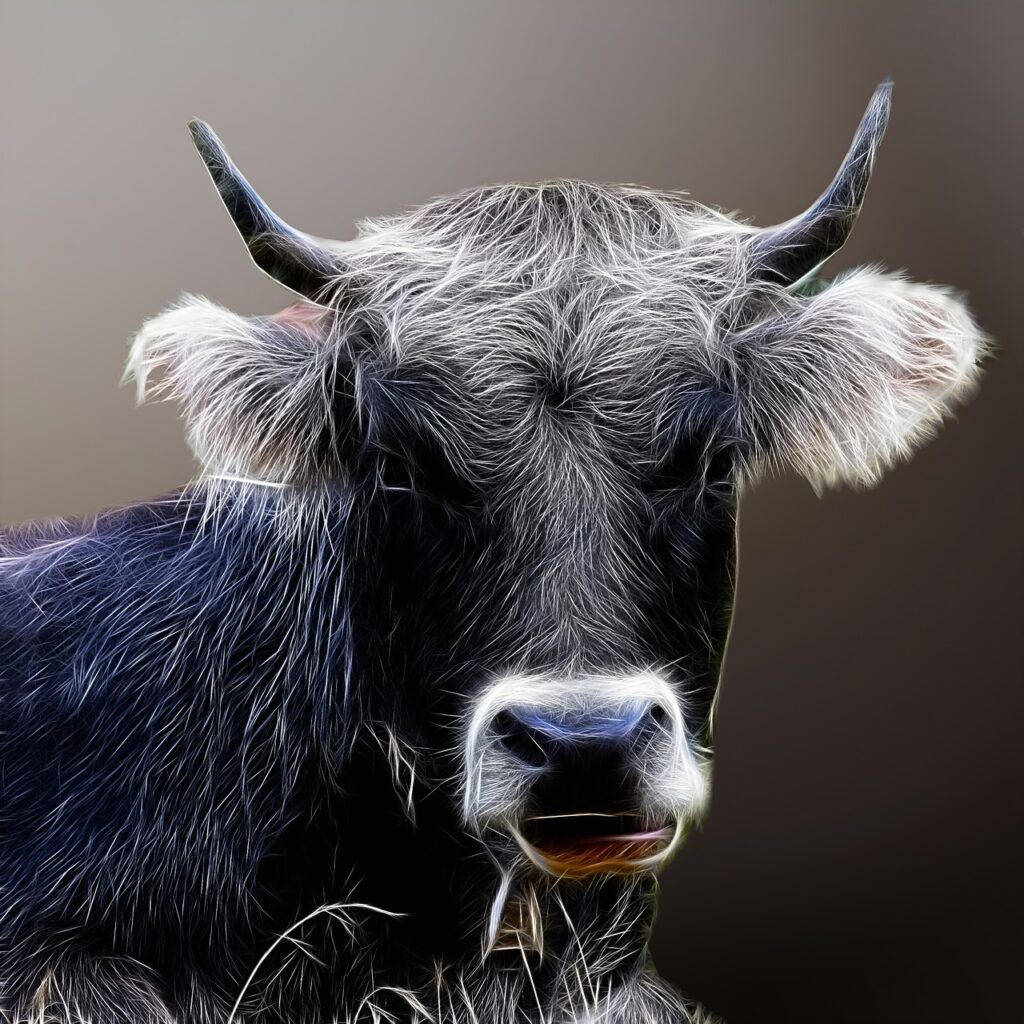Once upon a time there was an ox. The ox worked very hard in the field and he brought in a great harvest for his master year after year. After many years of service, however, the ox began to feel worn out. He began going through the motions and didn’t feel the same joy and strength that he used to. Eventually, as the stress from his workload slowly but surely increased the physical toll on his body.
As the farmer continued to prod and to drive him, the ox began to feel irritated. He tried to resist the bitterness and resentment that crept up within him towards his master who was driving him to perform such labor. Finally, as the pain increased day after day, he reached a breaking point. He was so tired that as the farmer struck him, he became filled with hurt and anger. Finally, the ox had had enough. He decided to run off into the wilderness, free from the shackles of his former masters. He then became a wild ox who would no longer submit to the authority of another.
“Will the wild ox consent to serve you, or will he spend the night at your manger? 10 Can you bind the wild ox in a furrow with ropes, or will he harrow the valleys after you? 11 Will you trust him because his strength is great and leave your labor to him? 12 Will you have faith in him that he will return your grain and gather it from your threshing floor?”
–Job 39:9-12 NASB1995
The term “wild ox” (or “unicorn” in the KJV) appears ten times in the Old Testament (NASB1995, NKJV). Many of those verses with “wild ox” speak of God’s power to crush His adversaries who will not submit to His leadership decisions concerning the Jewish people (see Numbers 23:22; 24:8; Deuteronomy 33:17; Isaiah 34:7). In Psalm 92:10, the horn of “the wild ox” speaks of the strength, exaltation, or anointing of a righteous person.

What do oxen represent in the Scriptures? They represent ministers, pastors, elders, and servants of God who use their strength to serve others and to reap a spiritual harvest. What then, does the “wild ox” represent? If a domesticated ox is a servant of God, then might a wild ox represent somebody in a position of religious leadership who does not serve others according to God’s desire and plan? When Jesus confronted Saul of Tarsus on the Damascus Road, He told him that “it is hard for you to kick against the goads.”
What did Jesus mean by that? An ox goad is used to steer the ox in the direction that his master wants him to go. When Jesus asked Saul, “Saul, Saul, why do you persecute Me? It is hard for you to kick against the goads,” Jesus was telling Saul that Saul was rebelling against God’s leadership (see Acts 26:14). Saul considered himself to be a servant of God who was zealous to defend God’s honor in his religious service (see Philippians 3:2-6; 1 Timothy 1:12-17).
However, Jesus confronted Saul and likened him to a wild or insubordinate ox who was not serving God, but was actually fighting against God. Saul’s teacher was Gamaliel, who advised that the religious leaders ought not to interfere with the men who had been with Jesus and were operating in signs, wonders, and miracles as they preached the good news about Jesus. However, as Saul sought out to destroy the church through persecution, he did not seem to heed the counsel of even his own human spiritual mentor, Gamaliel (see Acts 5:33-42; 22:3).
“Many bulls have surrounded Me; strong bulls of Bashan have encircled Me. 13 They gape at Me with their mouths, like a raging and roaring lion. 14 I am poured out like water, and all My bones are out of joint; My heart is like wax; it has melted within Me. 15 My strength is dried up like a potsherd, and My tongue clings to My jaws; You have brought Me to the dust of death. 16 For dogs have surrounded Me; the congregation of the wicked has enclosed Me. They pierced My hands and My feet;
17 I can count all My bones. They look and stare at Me. 18 They divide My garments among them, and for My clothing they cast lots. 19 But You, O Lord, do not be far from Me; O My Strength, hasten to help Me! 20 Deliver Me from the sword, My precious life from the power of the dog. 21 Save Me from the lion’s mouth and from the horns of the wild oxen! You have answered Me.”
–Psalm 22:12-21 NKJV
This passage is a prophecy about when Jesus would be crucified hundreds of years later. Wicked people (“dogs”) would cast lots for Jesus’ clothing and pierce his hands and feet. Those who mockingly accused Jesus on the cross, notably the religious leaders, are referred to as “strong bulls of Bashan” and “wild oxen”. Their accusatory statements are likened to the mouths of lions (see Psalm 22:12, 21; 1 Peter 5:8).
Bulls and wild oxen have “horns,” which biblically represent a position of authority and influence. Religious leaders carry authority and influence over the people who submit to their instructions, teaching, and spiritual care. The biblical writers compare pastors, elders, and ministers to oxen (see 1 Corinthians 6:9-14; 1 Timothy 5:17-18).

Wild oxen, therefore, can denote ministers in a position of authority or influence over others who are not themselves submitted to God’s leadership. It is dangerous for a minister to fight against what God is doing, for they shall be held accountable for the way they looked after the people whom God has placed under their spiritual care (see Ezekiel 34).
The scribes, chief priests, and teachers of the law (the pastors of Jesus’ day) did not submit to Jesus as Leader and Savior, but opposed his miracle-working, healing, and delivering ministry, accusing him of being a false teacher. Such religious leaders the Bible might compare to “wild oxen,” ministers with authority and influence who are not truly doing the will of God or submitting to His leadership in every area of their lives.
For more information about why religious leaders may act that way sometimes, see “Envy is Like a Viper.”
For more information on knowing God personally, see “Four Spiritual Laws about God’s Acceptance.”